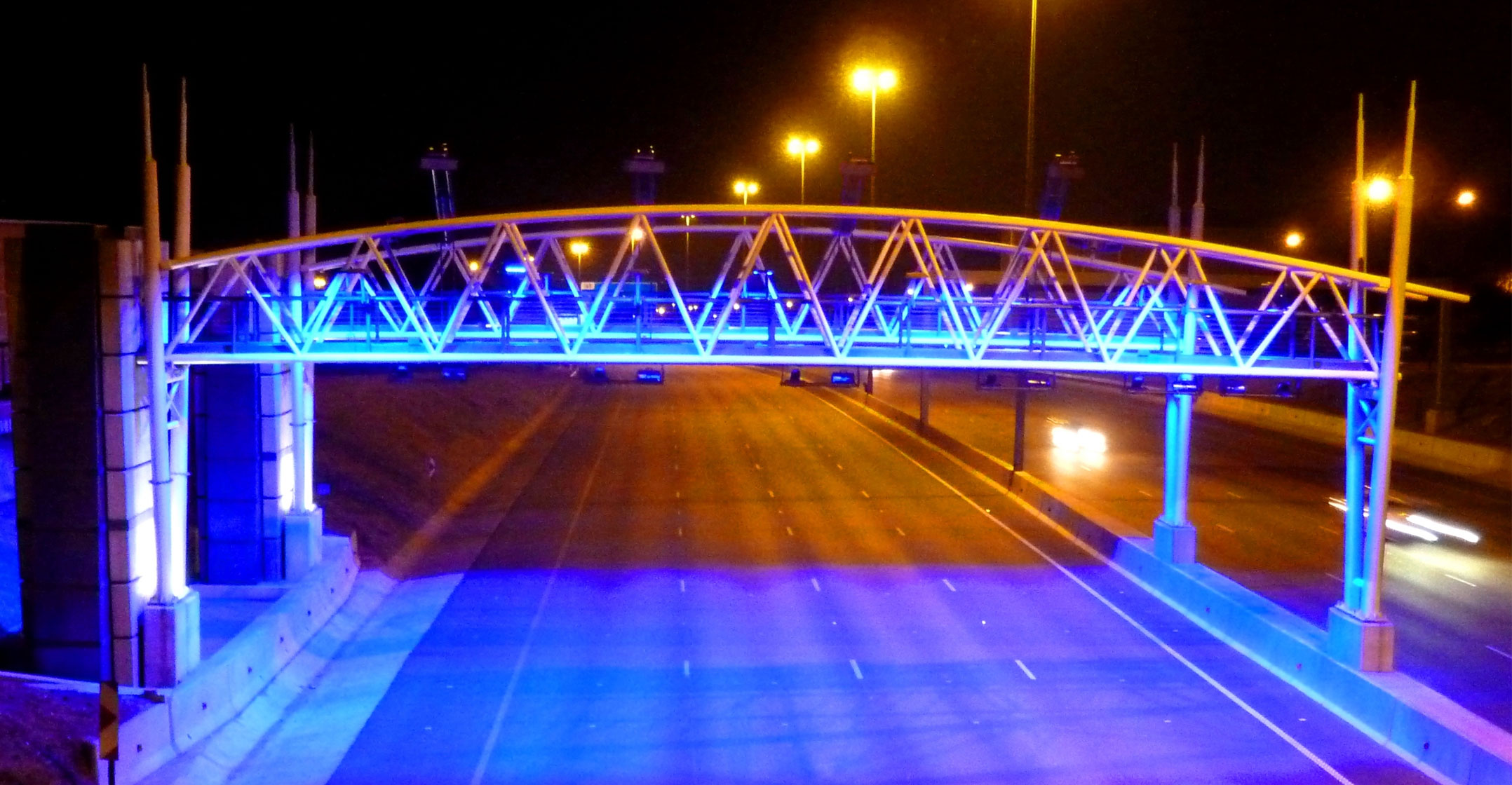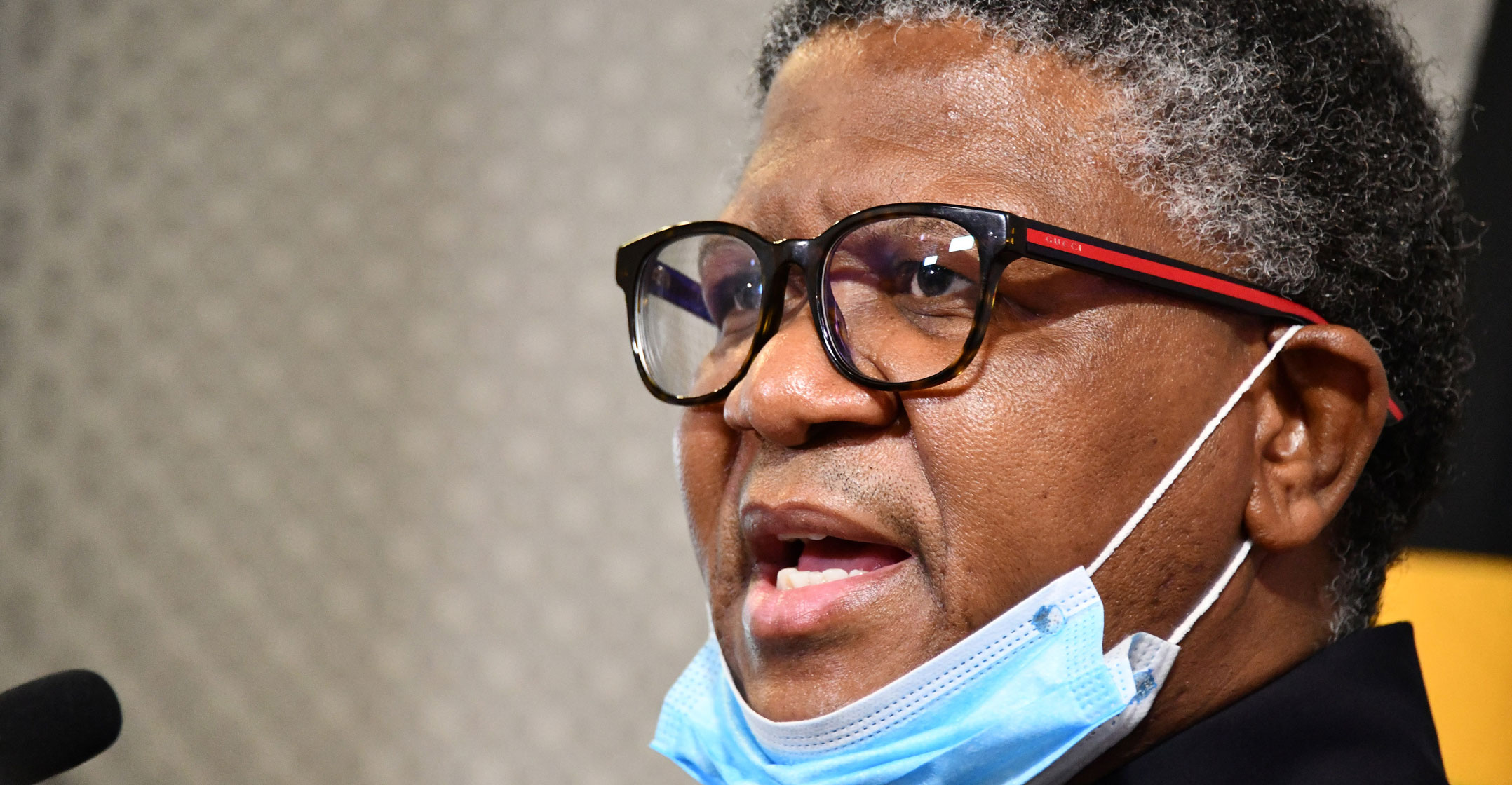
The e-toll payment compliance rate on the Gauteng Freeway Improvement Project (GFIP) has declined further and is now at 18% – its lowest level ever.
This was confirmed by Sanral spokesman Vusi Mona, who also said the agency has once again extended the operations contract awarded to Electronic Toll Collections (ETC) for the Open Road Tolling (ORT) system on the GFIP and Transaction Clearing House (TCH).
Mona said the overall compliance rate was about 20% before the commencement of the Covid-19 lockdowns in March 2020.
“During the hard lockdown (level 5 and 4), when light vehicle volumes in particular decreased, the compliance rate rose to 23%, which is indicative of a higher compliance rate by heavy vehicles for which the volumes remained largely unchanged,” he said. “The current e-toll payment compliance rate of 18% is the lowest rate [ever],” he conceded.
Sanral previously confirmed the compliance rate was at 21.33% in February 2020 compared to 22.75% in February 2019.
Organisation Undoing Tax Abuse (Outa) CEO Wayne Duvenage said Outa does not believe the e-toll payment compliance rate is 18%. “We think it’s closer to 15% but it’s neither here or there. They are barely covering the cost of collection,” he said.
According to Mona, ETC’s contract was extended for a further two months. This was before the contract’s expiry on 2 December 2021. ETC’s contract has been extended several times over the past few years.
Extended
The contract has been extended again despite Sanral saying in December 2020 that the extension of ETC’s contract for another year from 2 December 2020 would bring the contract to the maximum eight-year period.
“The ETC contract has been extended from 2 December 2020 for another year. This will bring the contract to the maximum eight-year period, as was allowed for in the original contract, or shorter if the new contractor is appointed before the end of the maximum period allowed,” Sanral said at the time.
Mona denied this week that another extension to ETC’s contract was not permitted in terms of the contract.
“The further extension of the contract for an additional two months to allow for the procurement process of a new contractor to be concluded was possible within the original approved contract value,” he said. He added that ETC will continue to manage this operations contract “until a new contractor has been appointed”.
Mona said the two-month extension still falls within the original approved contract value and that there are sufficient funds still available within the current contract. “It is merely an extension of time in order to conclude the procurement process,” he said.

The short-term extension of ETC’s contract does not appear to be related to the uncertain future of e-tolls on the GFIP, which was thrown into further doubt by transport minister Fikile Mbalula late last month.
Mbalula said during a question and answer session during a briefing on the state of transport entities in Johannesburg on 26 November: “When we went to cabinet, a decision was taken. When it was supposed to be implemented to scrap the e-tolls, treasury said: ‘No wait. You can’t’.”
“We will be ready by February to make an announcement on this matter and how we are going to handle the e-toll thing in South Africa. The minister of finance will be in a position to make the announcement in the budget speech in February,” Mbalula said.
The two-month extension to ETC’s contract means the contract extension will expire before the budget speech, which is delivered in mid to late February each year, and thus before the government’s final decision on the future of e-tolls on the GFIP.
Responding to a question on the status of the reissued tender by Sanral for the management and collection of e-tolls, Mona said “the consideration of the tender is continuing” and “is currently under relevant consideration”.
We will be ready by February to make an announcement on this matter and how we are going to handle the e-toll thing in South Africa
It appears from Mona’s response that the reissued tender is yet to be adjudicated.
Mona’s response to a question on why it has taken so long to adjudicate and award the reissued tender was vague. “The tender is currently receiving relevant attention by relevant structures within the organisation,” he said.
Sanral originally published the tender in August 2019, with a closing date of 5 September 2019. But Sanral in March 2020 cancelled the tender, which was in the process of being adjudicated, and indicated it planned to reissue it.
Sanral said at the time its board’s decision to cancel the tender was informed by a review of the assurance documents from the agency’s legal and internal audit departments, together with expert advice provided by the independent advisor to the board’s audit and risk committee.
The agency reissued the tender on 17 July 2020, which had a closing date of 16 September 2020, but agreed not to award this tender until a high court review of its decision to cancel the initial tender was finalised.
Unsuccessful
The review application was lodged by Kusa Kokutsha, whose bid for the cancelled tender was R4.5-billion cheaper than the second bidder.
Kusa Kokutsha was seeking the substitution of the tender cancellation decision with an order directing Sanral to award the tender to it.
The review application was unsuccessful, with Judge Johan van der Westhuizen dismissing Kusa Kokutsha’s application in December 2020, paving the way for Sanral to adjudicate and award the reissued tender.
Douglas Davey, who chaired the board of ETC, previously confirmed that ETC did not submit a bid for the tender because ETC is a special purpose vehicle and was established only to manage and operate the Gauteng tolling system.
However, Davey said Kusa Kokutsha, in which South Africa-based TMT Services and Supplies has a 44% shareholding and Kapsch TrafficCom a 5% stake, did submit a bid for the tender. ETC’s original shareholders were TMT and Austria-based Kapsch TrafficCom.

Duvenage described Sanral’s decision to extend ETC’s contract again as “an ongoing farce” and questioned why it has taken Sanral so long to appoint a new contractor. “Sure, there was some litigation but that was dealt with long enough ago.
“I guess it might have something to do with what are the alternatives to e-tolls because this is going to have to be a repurposed transaction clearing house business and I think that is getting in the way of the finality of this debacle,” he said.
Duvenage said a new contractor will be aware of the indications by cabinet ministers and various other people that e-tolls “is a dead duck and it’s going to be decided on”.
“What is actually being tendered for is the management of a transaction clearing house for other purposes and not necessarily for tolling. So, I’m very interested to find out what the content of that is because I don’t think anyone will be tendering to staff up and try and make money out of toll collections.”
- This article was originally published by Moneyweb and is republished by TechCentral with permission




